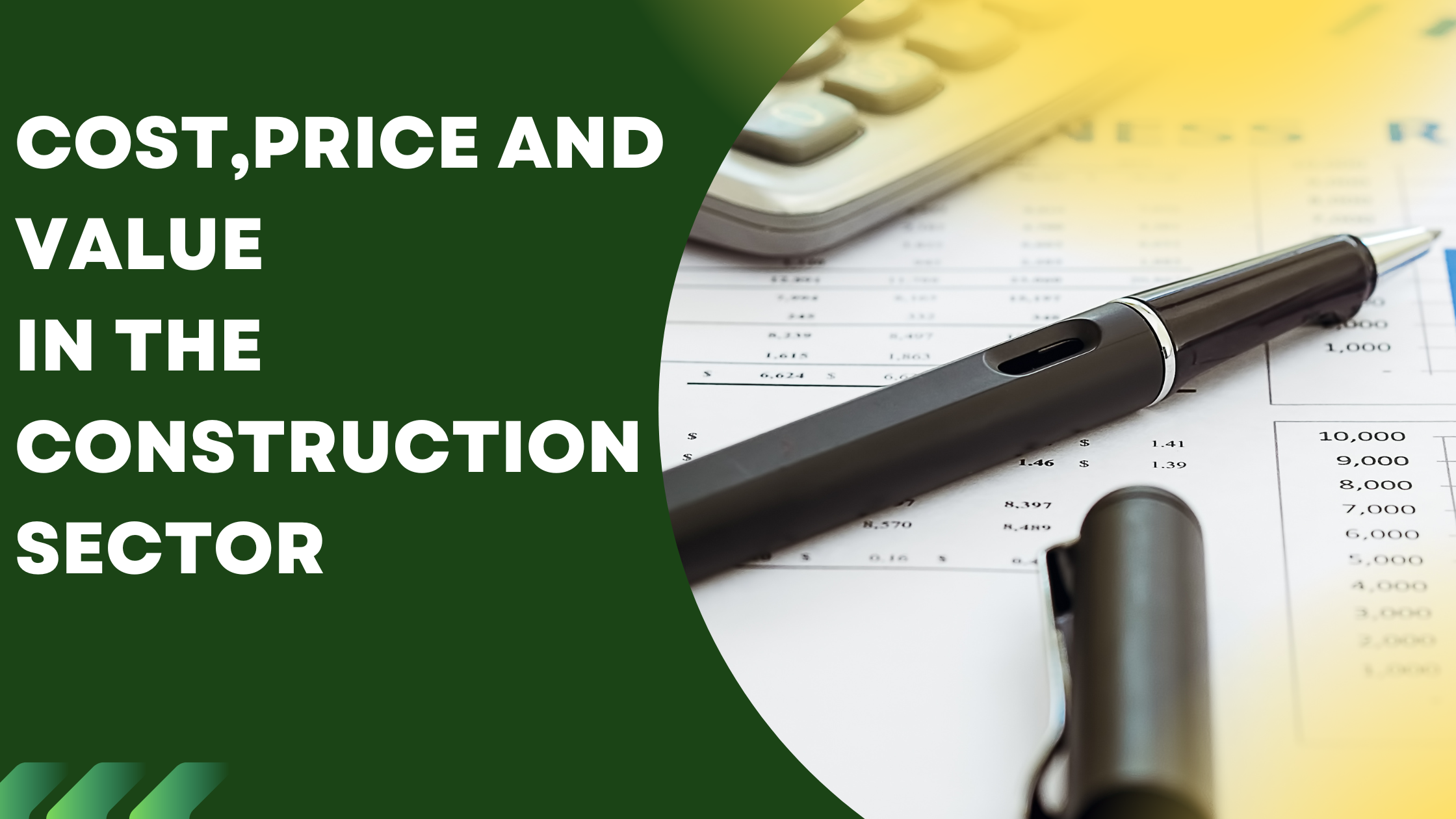COST, VALUE AND PRICE IN THE CONSTRUCTION INDUSTRY
Definition of price
Price is the amount a seller charges a buyer for a good or service. It includes cost and profit.
Definition of value
Value is the benefit a customer gets from a product or service. It is what the customer believes the product or service is worth. It can also be seen as what a good or service pays to a client.
Characteristics of value
- The value depends on the supply of the product and the demand among buyers.
Definition of cost
Cost is the money spent to produce a good or service. It covers materials, labor, and overheads. Cost is anything that adds to the expense of making or providing a product or service.
Cost is divided into:
Fixed costs: These stay the same, no matter how many units are made. For example, land.
Variable costs: These change with the number of units produced. For example, raw materials and labor.
Direct costs: These are costs directly tied to the project. Examples include the cost of materials and hiring equipment.
Indirect costs: These are costs not directly linked to the project but necessary to support the work. For example, running the contractor’s office.
It should however be noted that cost and price could be similar depending on the point of view of a person. A contract sum for example is the price the contractor charges for the building but from the client’s point of view the contract sum is the cost.
Example
When valuing work done, a Quantity Surveyor (QS) will re-measure the work and add labour charges. For example, the work might be worth 20,000 Kshs. But the cost to the contractor could be higher. If the contractor hires four labourers for work that two could do, they might spend 25,000 Kshs on work valued at 20,000 Kshs.
TYPES OF VALUE
In construction, value means what a building or product is worth when finished. It includes all costs of building, materials, systems, labor, overheads, and profit.
Functional value
Functional value is the practical benefit a product or service offers. It shows how well a building or infrastructure performs. This includes safety, usability, sustainability, and efficiency. For houses, functional value comes from enough living space, good lighting, ventilation, and easy access.
Monetary value
This is the economic worth of a property in money terms. It is the price a seller asks and a buyer agrees to pay. In construction, market value depends on supply and demand. Appraised value is decided by professionals who look at site conditions, size, location, and nearby sales. Intrinsic value is the true worth based on quality, age, renovations, and technical factors.
Sentimental or emotional value/esteem value
This is the emotional worth someone assigns to their property. It is based on memories, relationships, and personal ties. Usually, the owner values it more than others would. Sentimental value often comes from the owner’s connection to people, places, and past experiences.
Social value
Social value is how others perceive your property. For an individual owner, social value manifests in the status that comes from owning prestigious properties. Strong social ties, good schools, low crime rates, access to amenities and a sense of community are all intangible elements that impact a project’s desirability and value.
Understanding the differences between cost, price, and value is key in construction. Price is what the seller asks, but from the client’s view, it can also be the real cost. Value shows what a building or service is worth, based on usefulness, money, or feelings. Knowing these helps ensure projects are fair, efficient, and meet everyone’s needs. Focus on balancing cost with true value for better results in the construction industry. Make smart choices that suit your specific project and keep your goals clear.

Comments are closed